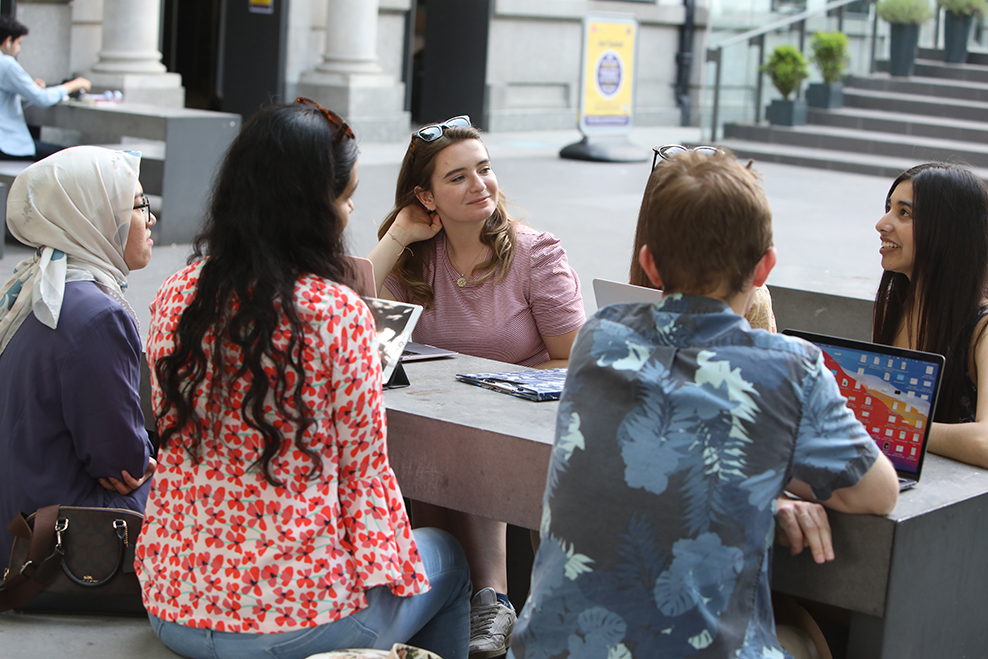At our PhD panel in November 2021, we heard from speakers now working in four career sectors – the UK public sector, academia, consultancy and an international organisation. Their different trajectories reveal experiences of career development which will interest anyone laying the foundations of post PhD progression.
In our ‘PhD Journeys’ series, we focus on the experiences of each of the panellists – this blog explores the career trajectory of Jaskiran Kaur Bhogal…
Jaskiran is a Behavioural Scientist at Public Health England, currently working on the Covid-19 Response.
Recently, PHE has changed its name to UKHSA, the UK Health Security Agency.
For Jaskiran, life as a PhD student was always busy – she found additional research roles, jobs and teaching opportunities whilst at LSE, so was used to juggling lots of activities during her PhD. On its own, the PhD would have been too slow moving and she was also self-funding, so welcomed the additional income, but Jaskiran acknowledges that this workstyle might not suit everyone. It’s important we each find what we are comfortable with and adapt other people’s experiences to our own needs.
But, continuing the multiple tasks theme, there was an overlap between Jaskiran finishing her PhD and starting work at UKHSA, so she managed the student role and the worker role in parallel for several months.
To academia, or not to academia
At the beginning of her PhD, Jaskiran was “100% sure” she wanted an academic career, seeing herself climbing the academic career ladder; however, on a journey of realisation, she became increasingly aware that this might not be what she really wanted. A desire formed for a more fast-paced environment – the capacity for impact and making a difference with her research. In doing a departmental research project on Covid-19 and care, she realised she wanted to be in a policy environment and to be able to work with more flexible working arrangements.
Jaskiran found her current role through her supervisor who suggested she apply. It aligned with the departmental research project, but not with her PhD topic and so she feels some frustrations, for example not feeling like an expert in what she does and sometimes finding it demoralising to sense that her PhD was not necessary for her job. There are also some communication barriers around research methodology given she is part of an interdisciplinary team, and there’s a sense of research being somewhat superficial in a rapid response team, making Jaskiran wonder how she will look back on her contributions in the future. In a memorable phrase, she describes her PhD as being both “the worst and the best decision” she’s taken.
Adjusting to civil service life
The civil service is a very hierarchical organisation and Jaskiran notes it can be hard to transition into and adapt to after a PhD. For example, she has fixed 9 to 5 working hours, no autonomous time management, has experienced instances of micro-management and feels there is little option to pro-actively create change to the role. But she also sees that there are benefits to working in the civil service: the work is rewarding and interesting and there is a good pension scheme. But with many fixed-term roles (which mean it’s hard to get mortgages and “do life things”), challenges remain, and some parts of the civil service are not diverse places. For Jaskiran, she feels she’s in a difficult space as a woman of colour, and gives caution that change will need time to happen in the civil service and wider public sector to make it more inclusive.
A continued search…
Jaskiran’s search for the “sweet spot between academia and impact” goes on, not yet having arrived at that position. In terms of advice, she encourages you to see the value of job alerts and LinkedIn to explore and reach out to different people and departments; to find your balance between PhD work and applications. Work out what kind of person you are (lots of rejections can be demoralising, so apportion the number of applications accordingly) and don’t take rejections personally, there is always an element of arbitrariness.
In application processes, demonstrate you have all the criteria asked for, even though when you start a job you may learn that the job description and job may not overlap at all! There will be challenges, but she recommends we think about them as something to put on the CV, something one grows through and that can open future doors.
The next chapter…
Since the alumni panel was held, things have changed again for Jaskiran and she has great news to share now. An application to LSE to join the Eden Centre team working on inclusive education has been successful and Jaskiran is delighted to be moving back to LSE. This example of dancing across the boundary of academia and other sectors may inspire others to consider similar interesting pathways and career progression.
With thanks to all our contributors to the PhD Journeys series – Astrid Hampe-Nathaniel, Jaskiran Kaur Bhogal, Jun Yu and Anne Irfan.
For more support with planning your next steps after your PhD, book an appointment with Catherine Reynolds.





